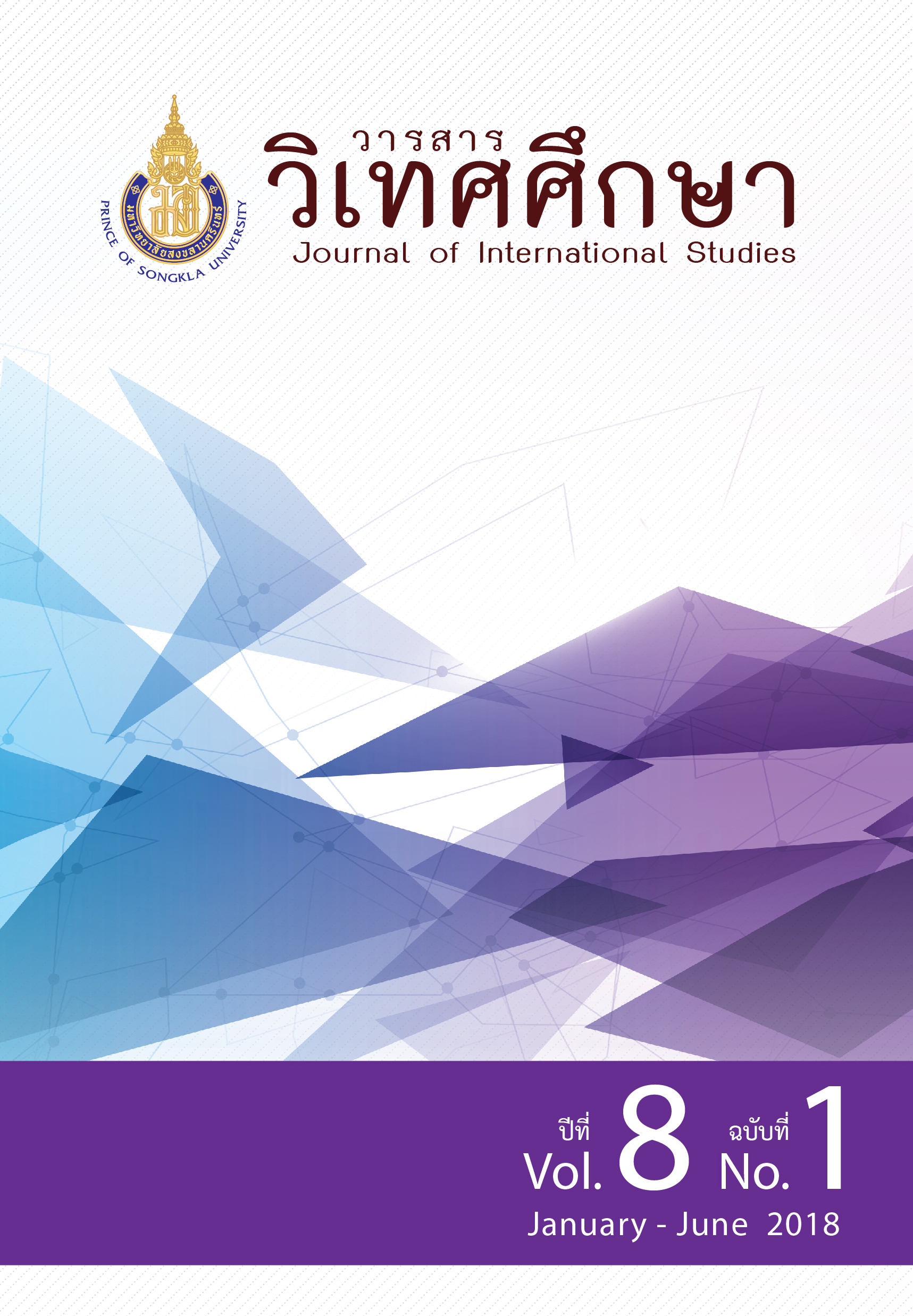Active Learning with Passive Learners: Sociocultural Challenges for English Lecturers in Thai Higher Education
Main Article Content
Abstract
The Thai educational system follows a traditional method for learning throughout elementary and secondary schooling, and thus carried on to the university level(Darasawang, 2007). This style reflects Buddhist principles of respecting one’s instructors. Although such passive pedagogy may account for theharmonyof the nation, students of higher education face difficulties with active learning. At Thaiuniversities, lecturers must come up with innovative ways to promote Active Learning(AL) while maintaining a platform embracing Thai culture in education where aninstructor can reflect the idea of “sage on the stage” while acting as a “guide on the side.” The objective of this research is to provide English lecturers in Thailand a culturally-relevant perspective when integrating AL strategiesin their classrooms.
Article Details
Statements and opinions expressed in articles herein are those of the authors and do not necessarily reflect the position of the editors or publisher.
Article, information, text, image, etc. which are published in Journal of International Studies, belong to Journal of International Studies. If anybody or any organization would like to use part or whole of them, they must receive written permission from Journal of International Studies before usage.
References
Baker, L. L. (2016). Re-conceptualizing EFL professional development: Enhancing communicative language
pedagogy for Thai teachers. TEFLIN Journal, 27(1), 23-45. http://dx.doi.org.proxy1.calsouthern.edu/10.15639/
teflinjournal.v27i1/23-45
Darasawang, P. (2007). English language teaching and Education in Thailand: A decade of change. Newcastle D. Prescott (ed.) Cambridge Scholars Publishing.
Gulley, H. (2009). Debate versus discussion. Quarterly Journal of Speech, 28(3), 305-307. doi:10.1080/00335634209380779
Klunkin, A., Subpaiboongid, P., Keitlertnapha, P., Viseskul, N., & Turale, S. (2011). Thai nursing students’ adaptation to problem-based learning: a qualitative study. Nurse Education in Practice, 11(6), 370-374.
doi:10.1016/j.nepr.2011.03.011
Morales, E. E. (2017). Generating academic urgency through improved classroom management: A case study of a university and urban charter high school partnership. Educational Research Quarterly, 41(2), 25-42. Retrieved from http://proxy1.calsouthern.edu/login?url=https://searchproquest-com.proxy1.calsouthern.edu/docview/
?accountid=35183
Noomura, S. (2013) English-teaching problems in Thailand and Thai teachers’ professional development needs. Language Institute, Thammasat University, Thailand. doi: 10.5539/elt.v6n11p139
Papert, S. (1993) The children's machine: Rethinking school in the age of the computer. New York: Basic Books.
Rojprasert, S., Neanchaleay, J., & Boonlue, S. (2013). A synthesis of self-directed learning design model with constructionism in the environment of new media in Thai higher education. Review of Higher Education and Self-Learning, 6(18), 157-165.
Sinlarat, P. (2005). Changing the culture of education in Thai universities. Higher Education Policy, 18(3), 265–269. doi:10.1057/palgrave.hep.8300088


